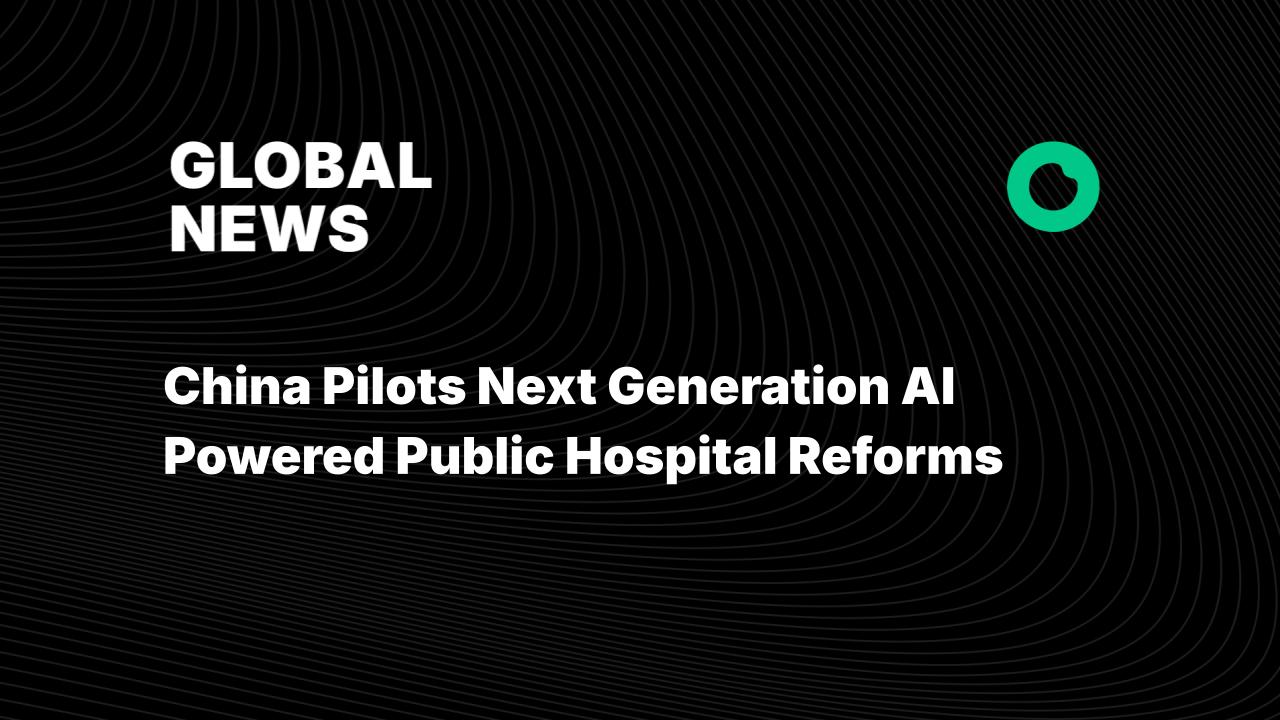According to healthcareitnews.com, China’s latest round of public hospital reform pilots in Jiangsu Province is increasingly weaving AI into frontline care, from primary care triage and diagnostic decision support to population health management and referral tracking, as part of a broader push to modernize the national health system.
Jiangsu is rolling out digital platforms built on public cloud, AI, and big data to expand access to public healthcare services. In Suzhou, one of the province’s demonstration cities, an “AI Personal Health Assistant” is being developed within the Suzhou City Life Services app, SuZhouDao. This assistant can analyze an individual’s annual health check results and medical records to build a personalized health profile.
Suzhou has also trialed “AI general practitioners” that support pre-consultations, diagnostic assessment, and case and prescription review. Deployed in Zhangjiagang County, this AI system has already served over 5 million residents and, according to Suzhou Vice Mayor Ji Jing, has “greatly improved” diagnostic capability and accuracy among primary care physicians. In Binhai County, a closed-loop referral management system uses AI to generate personalized health analysis reports and support more efficient patient transfers.
These initiatives sit within the National Health Commission’s ongoing public hospital reform program, which designates Jiangsu as a key demonstration province for governance, service delivery, and digital health innovation. Tan Ying, director of the Jiangsu Provincial Health Commission, noted that the province is actively advancing the use of large AI and big data models in medical institutions and promoting widespread uptake of AI-assisted diagnosis and treatment tools at the primary care level. A provincial health cloud has been created, along with multiple digital platforms that enable real-time sharing of imaging and diagnostic reports, remote consultations, ECG monitoring, and referral services.
To date, 256 internet hospitals have been established across tertiary hospitals in Jiangsu, reportedly increasing their patient service capacity by 52% year on year. City- and county-level pilots are also driving integrated, standardized care pathways. Suzhou is building unified digital health records, a public hospital governance platform, and a citywide health collaboration system. Yangzhou is deploying an intelligent medical behavior supervision platform and cross-institution “carry-your-records” services while expanding internet hospitals.
Nanjing has set up a five-tier remote consultation network linking facilities from provincial hospitals down to village clinics, alongside a smart platform for standardizing clinical pathways. Binhai County has connected 15 township health centers and 310 village clinics through a digital medical network that shares diagnostic services and supports more consistent care standards.
The NHC’s reform blueprint builds on the Sanming model pioneered in Fujian Province in 2012, which focuses on integrating public health providers, pooling a prepaid insurance fund for the integrated group, and shifting emphasis from treatment of disease toward overall population health.


